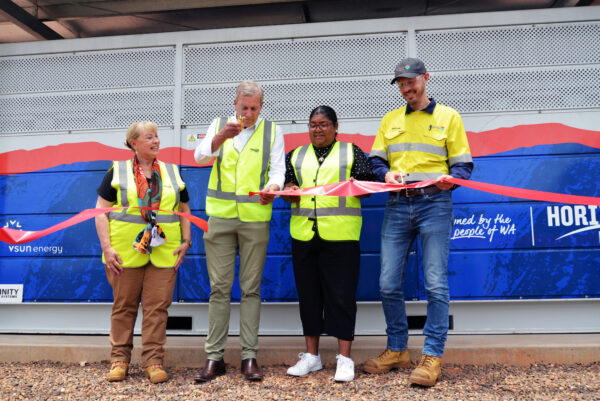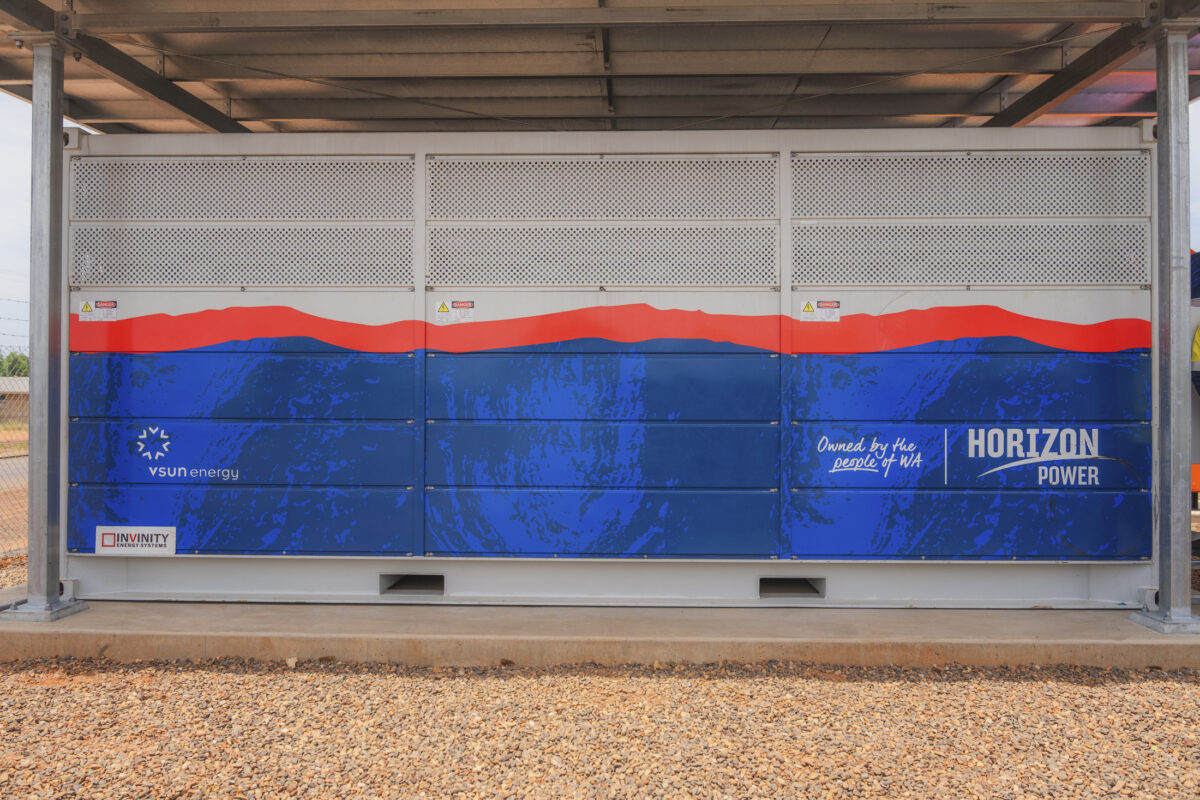Horizon Power has commissioned a 78 kW / 220 kWh vanadium flow battery (VFB) at Kununurra in Western Australia’s (WA) north as it examines how the technology can be best utilised to support renewable energy supply in regional and remote areas.
The pilot project will test whether VFB technology – which proponents say can provide up to 12 hours of storage and operate across a wide temperature range – can solve technical challenges associated with establishing long-duration energy storage solutions in extreme environments.
Horizon Power Chief Executive Officer Stephanie Unwin said this is the first time vanadium flow technology has been tested in WA and if successful, it will be a real game changer for clean and reliable energy for regional and remote communities.
“Kununurra, with its hot and humid climate, is a challenging environment for battery energy storage,” she said. “Piloting the vanadium flow battery in these extreme conditions will help us to learn more about its capabilities and the potential for it to be effectively integrated into our network, much of which is subject to extreme temperatures.”
The 220 kWh battery has been sourced from United Kingdom-based manufacturer Invinity Energy Systems but supplied by Perth-headquartered company VSUN Energy, a subsidiary of Australian Vanadium Limited (AVL), which has handled the installation and commissioning.

Image: Horizon Power
AVL Chief Executive Officer Graham Arvidson said the VFB technology provides a “proven” alternative to the lithium-ion battery technology that currently dominates stationary energy storage applications.
“It is an established, proven technology,” Arvidson said. “It’s not R&D and why you don’t see them everywhere yet in places like Australia is because the new-use case is only arriving now.”
“It’s now really coming into its own with the energy transition because we’re looking at longer-duration batteries. We are entering a completely new phase of the energy sector where the economics of these batteries will become very compelling.”
The durability, temperature resilience, and long-duration storage capacity of vanadium flow batteries suggests they could play a vital role in reducing the use of fossil fuels in power generation, particularly in harsh environments and remote locations.
Horizon said the Kununurra pilot project will provide it with valuable operational experience and understanding of VFB technology. The 12-month pilot will also provide it with lessons on how to integrate long-duration energy storage into its network and off-grid power systems.
“We look forward to learning more about the potential for this technology to be effectively integrated into our network, supporting future battery deployment across our footprint,” Unwin said.
Horizon is responsible for delivering energy solutions across a service area covering 2.3 million square kilometres. It operates the North West Interconnected System (NWIS) in the Pilbara region, the smaller Esperance network, as well as 34 microgrids in regional towns and remote communities.
This content is protected by copyright and may not be reused. If you want to cooperate with us and would like to reuse some of our content, please contact: editors@pv-magazine.com.









1 comment
By submitting this form you agree to pv magazine using your data for the purposes of publishing your comment.
Your personal data will only be disclosed or otherwise transmitted to third parties for the purposes of spam filtering or if this is necessary for technical maintenance of the website. Any other transfer to third parties will not take place unless this is justified on the basis of applicable data protection regulations or if pv magazine is legally obliged to do so.
You may revoke this consent at any time with effect for the future, in which case your personal data will be deleted immediately. Otherwise, your data will be deleted if pv magazine has processed your request or the purpose of data storage is fulfilled.
Further information on data privacy can be found in our Data Protection Policy.